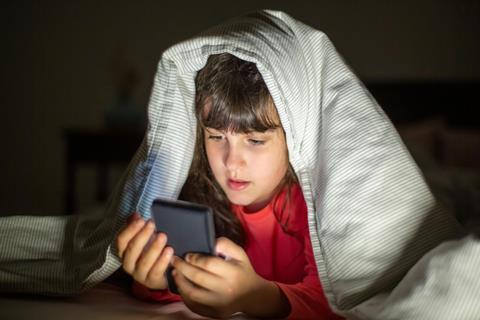This week the Children’s Commissioner released a report on the deepening problem of youth and children accessing pornography. Robin Barfield thinks Christian parents need to deal with their own embarrassment so they can talk openly about the issues with their kids

I have written before on being hopeful and wise when it comes to the online lives of youth and children. Part of that wisdom is recognizing that your children will see images that you wish they did not. I am not going to use the p*rn word because I think it is more serious than that. What your child may stumble across or seek out or be sent may even be violent and non-consensual sexual images. These are not just images but high-definition videos. I use the word child as the latest Children’s Commissioner report states that 10% of children have seen such images by age 9.
We can try to hide the wickedness of the world from them and, among younger ages we may succeed. But ultimately that will fail and will not prepare them to live in the world when they are older. Not giving your child a phone is not going to stop them being exposed as they will have friends who show them. Removing their phone does not make their lives phone free.
I recognize the awkwardness of this and I feel it myself
The making and sending of their own images, or sexting, is also prevalent. Increasingly, young people are seeking and offering their own homemade explicit images. These are then shared beyond the individuals for whom they are intended. So, what do we do? Do we just give in and accept it?
Step 1: talk about it
Have a conversation with them around what they have seen. Starting conversations early, when they accidentally see things without wanting to, can keep the conversation open for a later time when they want to see things and deliberately seek them out. As Russell Moore has said, the problem for the church lies in ‘how covertly it treats the issue.’ Starting the conversation is an incredibly important first step. And note the statistic above – we will need to do this earlier than we realise.
Step 2: talk about it
Ask your child what restrictions they would like you to put in place. Older children are likely to be more tech savvy than us and will find ways around any fences that we put up. That is not to say we do not put up protection, but having an openness to talk with our children is far more important. If they want us to put protections in place that will be far more effective than applying them by fiat and locking down the internet. We may want to talk to them about what they have seen and what they think about it. They may need to know the links with trafficking, how women and girls are used, abused, and discarded, and how it is shaping the way they look at other people. If they are watching images which treat precious human beings as objects, then they too will begin to view precious human beings as objects.
Read more:
How Christian parents can teach their children about consent
Sex and relationships need to part of our ‘everyday’ conversation
Step 3: talk about it
We want to put the positive of God’s plan for the good place of sex, and what a twisted version they are seeing. A recent BBC survey suggested that online explicit material was functioning as sex education for many young people. They therefore need to have a more beautiful and more realistic picture of how God has designed sex and intimacy. What they are seeing online is such a disappointment of what should be.
Step 4: talk about it!
Our main goal surprisingly is not to stop them viewing explicit material, it is for them to hate it! ‘Take away the love of sinning, alpha and omega be’ as Charles Wesley wrote. For many there will be a sense of shame around what they are searching for. And it will not just be limited to boys, although girls tend to view different types of images. Same-sex attracted young people may face a double shame in this and that will need to be handled gently and lovingly by parents.
I recognize the awkwardness of this and I feel it myself. Making the first step of raising it is difficult: Is there anything you’ve seen online that you wish you hadn’t? Has anyone sent you anything that you know they shouldn’t? As a father I am not very good at this. But I know how important it is. And if I do not do it, who will? And if we do not, then what will the consequences be?
Further resources:
- Robin Barfield, Young People and Pornography: Understanding and Responding Pastorally (Grove Booklet, Y79)
- Ben Dyer, Applying The Handbrake: A Teenage Boy’s Honest Account About God And Porn (Naked Truth Resources, 2018)
- The Naked Truth Project
- Covenant Eyes
This article was originally published in July 2025 and has been republished in response to the report from the Children’s Commissioner.


































